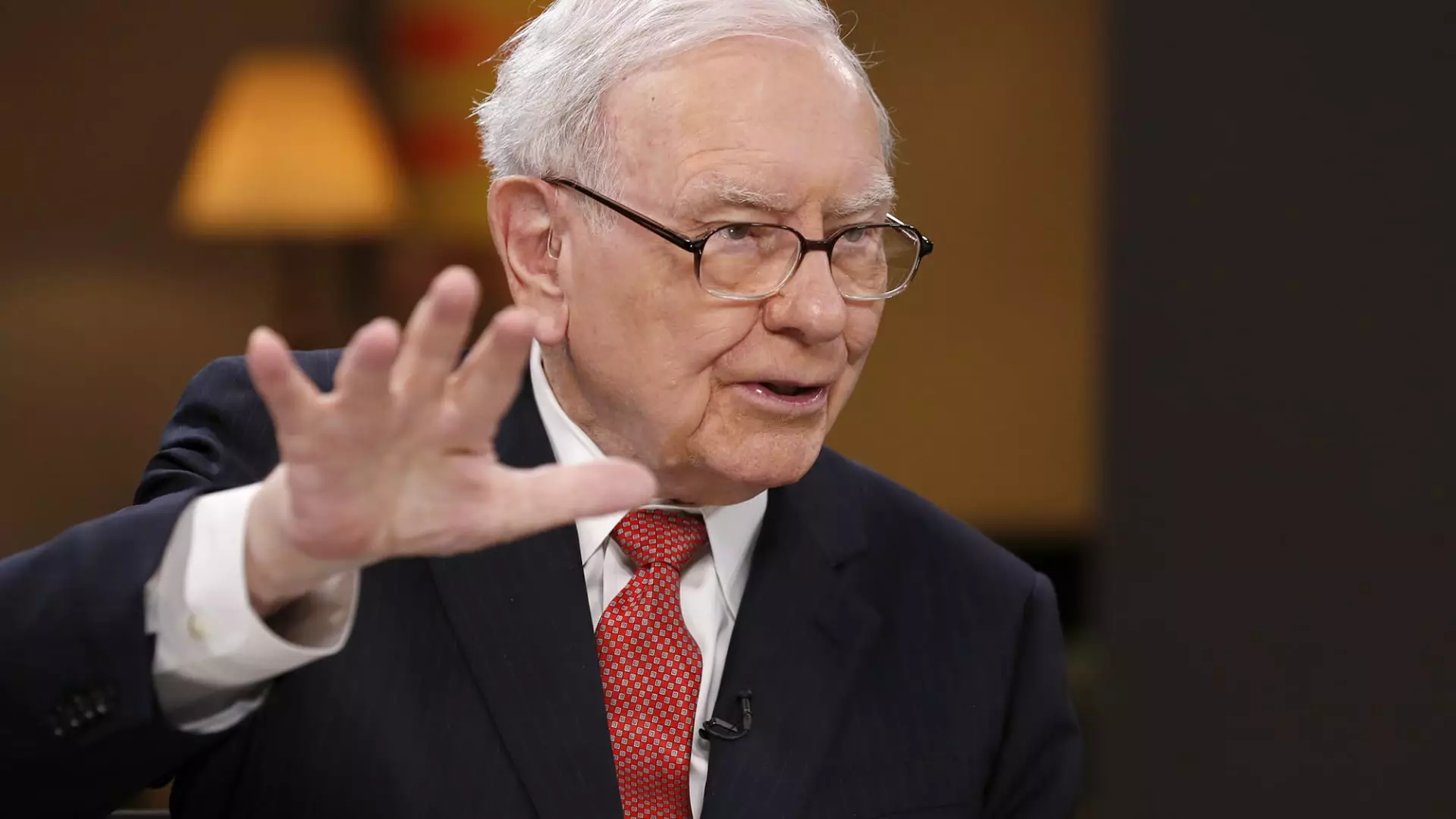Warren Buffett, the renowned investor and CEO of Berkshire Hathaway, exemplifies an unconventional yet thought-provoking approach to wealth management. With a staggering net worth exceeding $150 billion, Buffett stands as one of the wealthiest individuals in the world. However, instead of perpetuating a legacy of dynastic wealth that could span generations, he has taken significant steps to redefine how his fortune will impact future generations. His decision to appoint independent trustees for his philanthropic legacy, alongside a commitment to give away an overwhelming 99% of his fortune, underscores his belief that extreme wealth can often hinder personal growth and complicate familial relationships.
Buffett’s stance against transmitting vast fortunes to his heirs is both controversial and refreshing. In a recent letter, he explicitly articulated his views on the risks tied to creating family wealth dynasties. He acknowledged the unpredictability of how descendants might handle inherited wealth, considering factors like personal priorities and the rapidly shifting landscape of philanthropy. By asserting that he does not intend to create a “dynasty,” Buffett raises essential questions regarding the responsibilities that come with great wealth. He argues that hereditary fortunes could foster complacency, dependency, and disconnection from real-world challenges among heirs.
While many affluent individuals view wealth as a means of generational security, Buffett’s insights advocate for an approach that prioritizes societal betterment over personal legacy. His belief is grounded in an astute understanding of human behavior and the potential pitfalls of unearned financial benefits. Rather than fostering entitlement, he encourages active engagement in philanthropic efforts.
To this end, Buffett recently designated three independent trustees to oversee his charitable contributions, which he has pursued diligently since 2006. By providing these trustees with a level of independence from his children—who are now in their late sixties and early seventies—he seeks to navigate the complexities of wealth distribution while ensuring that his philanthropic vision remains intact. Although these trustees have not been publicly disclosed, their roles are crucial in safeguarding the intent behind Buffett’s generosity.
This choice reflects Buffett’s calculated strategic thinking; he hopes his children will be the primary decision-makers in disbursing his assets during their lifetimes. However, by preparing successors who are marginally younger and presumably more attuned to the evolving philanthropic landscape, he is taking proactive steps to secure his charitable initiatives for the future.
Through his candid observations of his children, Buffett expresses a solid foundation of trust in their abilities and aspirations related to philanthropy. He has taken the time to evaluate their behaviors, perspectives, and commitment to large-scale charitable endeavors over a significant period. Emphasizing that they are not preoccupied with wealth, he attributes this mindset to values instilled by their late mother, which highlights the importance of familial influences in shaping attitudes towards responsibility and philanthropy.
Buffett’s model presents a radical alternative to traditional views regarding inheritance. It challenges the prevailing notion that wealth equates to security while advocating for a more engaged approach in dealing with financial resources—a lesson that extends beyond the confines of the Buffett family.
As one of the most prominent figures in the world of finance, Buffett’s decisions carry weighty implications for how society perceives and engages with wealth accumulation and distribution. His approach to philanthropy, which prioritizes effectiveness over the perpetuation of wealth, can serve as a guide for other wealthy individuals grappling with similar moral dilemmas. In a climate marked by increasing economic disparities, Buffett’s insights can facilitate discussions concerning responsible wealth stewardship and the societal obligations that come with substantial financial power.
By fostering an awareness of the potential drawbacks of inheritance and promoting a model rooted in giving, Buffett is not only reshaping his legacy but also encouraging a shift in societal attitudes toward wealth and philanthropy. His actions highlight the vital connection between individual choices regarding wealth and their broader impact on society, enforcing the notion that how we manage and distribute our resources can indeed create profound change.
Warren Buffett’s commitment to philanthropy over dynastic wealth offers an inspiring paradigm for individuals in similar positions. By championing values of foresight, responsibility, and a genuine desire to foster societal progress, he not only sets a precedent for his family but also encourages others to consider the implications of their wealth on the world stage. Ultimately, Buffett’s legacy will extend far beyond his financial achievements— it will be defined by his unwavering belief in the power of giving.

